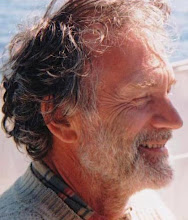What we Win, and what we Lose
Lila has Quality. That’s what the author said to the prude, way early in the book. And right near the end the voice of his higher self tells him that this action - of standing up for Lila in the way he did - was ”the one moral thing he’d done on the whole trip”; that is what saved him.
So Phaedrus is “the winner”….. “…By default.”
One of the consequences of winning, it appears, is that you are saved from “a lifetime of Lila.” Richard Rigel the prude, whom Lila seems to have an unaccountable trust, affection and respect for, has to all intents and purposes won the fair lady. And yet that higher (or sarcastic, cynical) Phaedrus makes the confident claim that Rigel "has had it. From here on he’s putty in her hands."
So an important aspect of Phaedrus’ victory is that he has escaped from the relationship.
I always felt the book could not really end there. There would have to be a sequel, because Lila’s perspective on the situation couldn’t be allowed to just disappear up river to the lunatic asylum. Because, as of the end of the book we have in our hands, we are left with Phaedrus’ definitions of Lila seeming to prevail over Lila’s definitions of Phaedrus.
During the course of the narrative, we are invited to participate in the perspectives of both people. We hear Phaedrus’ speculations on the wing. Lila has Quality. Yes. But on the other hand, this Quality is seemingly confined to a level called “biological”. At the level of Social Quality, Phaedrus doesn’t think Lila amounts to anything much… and at the Intellectual level: she’s nowhere!
Except there’s something else:
But Dynamically… There’s something ferociously Dynamic going on with her. All that aggression, that tough talk, those strange bewildered blue eyes. Like sitting next to a hill that’s rumbling and letting off steam here and there… It would be interesting to talk to her more.
Unfortunately, he botches this conversation somewhat – he is a bit too greedy for information, and doesn’t give very much of himself in return. He is not very sensitive to the quality of “grilling” that he is putting into the exchange. He doesn’t seem to appreciate how she might feel that her interlocutor has cut her, dried her, grilled her and is now about ready to eat her up.
Even so, with the help of serious quantities of Scotch she later comes to make such tender love with him that it takes him hours of metaphysical speculation to attenuate the memory - that he really connected with another human being. Still later, after he has let go of his "intellectualizing" (Phaedrus’ word), he comes to a different conclusion: That was the only good thing that had happened all day, the way their bodies paid no attention to all their social and intellectual differences and had carried on as if these “people” that “owned” them didn’t exist at all. They had been at this business of life for so long.
All this is wonderful, to my mind, in portraying phases and perspectives of a relationship in the making – in the story of “a trip” that is co-created by its several participants. But I am somewhat disturbed by the talk of “winning”, and who has “won” at the end – even with the reassurance that Lila has somehow won control over our despised Richard Rigel. And most especially, I am concerned that we have lost Lila’s perspective on the situation altogether.
The Quality of our relationships in the making: this is what I shall take as my starting definition, for the collaborative enquiry which I would like this blog to become. I think that Robert Pirsig has offered us some basic categories which can facilitate our exploration. We are invited, it appears to me, into a whole other world, that we can co-create and explore together – if we can only find a way to maintain that sense of co-creation. To me, this means we have to guard against one person’s definition prevailing over the other. We have to be able to fight, as Phaedrus and Lila fought, without anybody having “to win”. If, in the story of Phaedrus and Lila, a genuine confrontation of perspectives was not possible – and if a parting of the ways was unequivocally the best outcome for both – still I want to hold out the hope that future meetings may carry the possibility of a richer and more genuine exchange. We need to make love with one another, not only at biological but also at social and intellectual levels. Or die.
I think the enquiry is already going on, in a million ways, in a million different locations. Pirsig’s stark opposition of a Metaphysics of Quality as against Subject-Object Metaphysics leaves, on my map, a vast excluded middle of ambiguous enterprises which are effectively seeking Quality even if they do not speak explicitly about it. One such enterprise, founded by the psychiatrist M. Scott Peck in the 1980s is Community Building and I shall have more to say about this in later postings – as well as several other fruitful methods which I have happened upon at different stages of my own quest – all pointing in a similar, hopeful direction.
Subscribe to:
Post Comments (Atom)

No comments:
Post a Comment